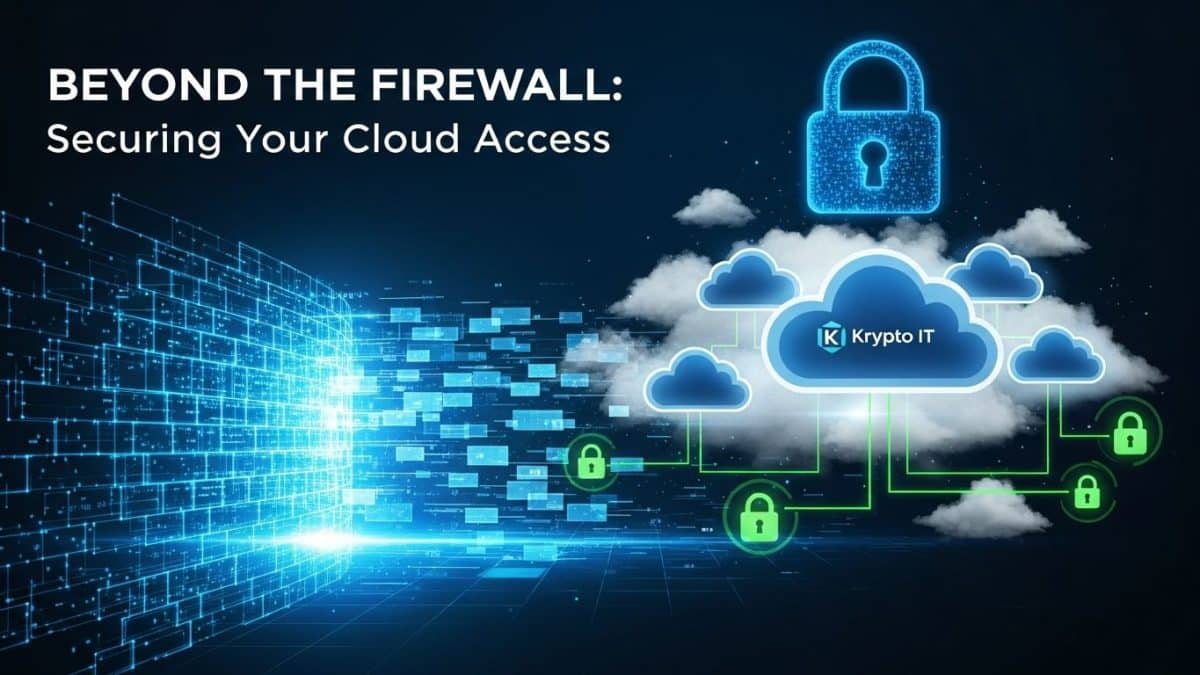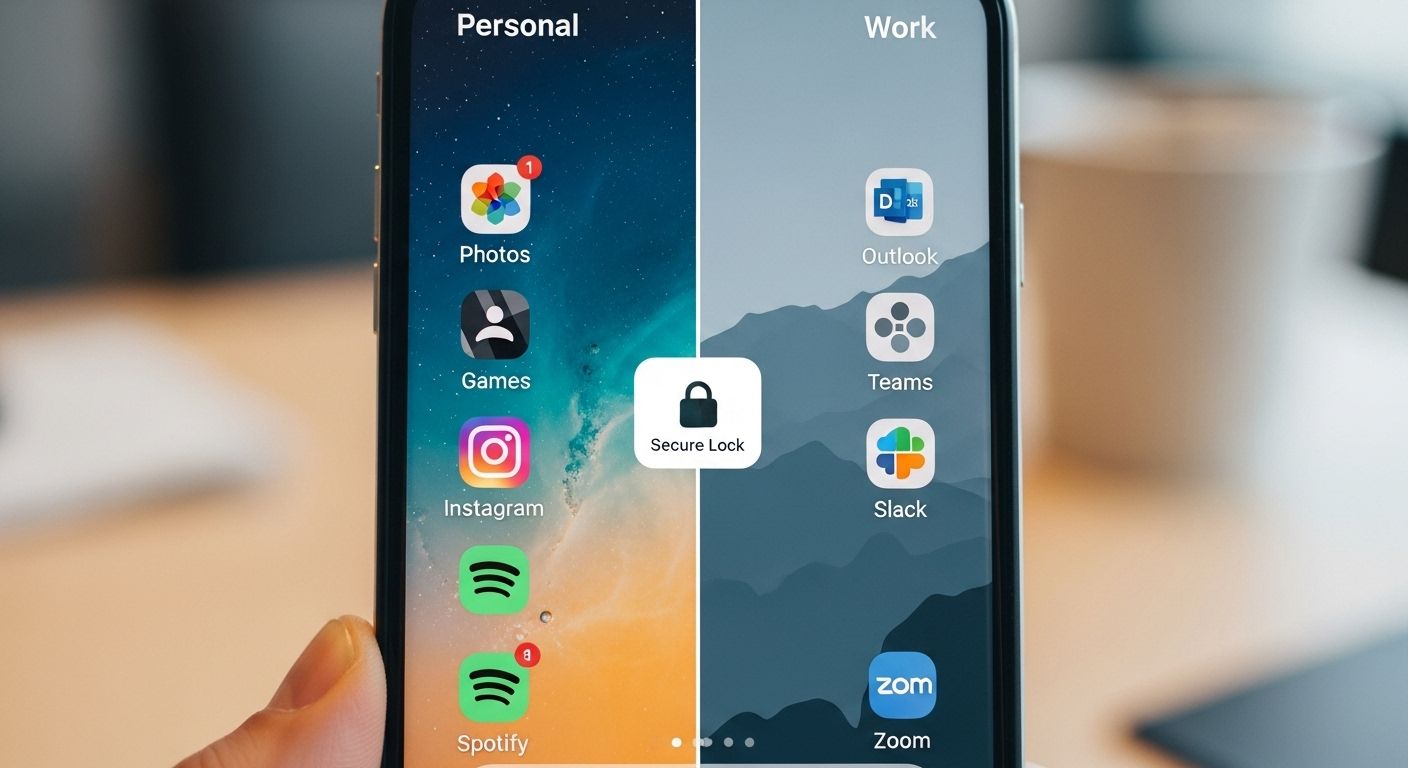
Your Network’s Constitution: A Security Policy
September 3, 2025
The Silent Threats of Social Media and Online Use
September 5, 2025Your Network Perimeter Just Dissolved – Here’s How to Protect It
For countless Small and Medium-sized Businesses (SMBs) in Houston, the digital landscape has fundamentally changed. The days of a single, defined “network” confined to the four walls of your office are a thing of the past. Today, your business operates in a hybrid world, where your data and applications live not just on your on-premises servers, but also in a myriad of cloud services like Microsoft 365, Salesforce, and other SaaS applications.
This shift to the cloud offers unparalleled flexibility and scalability. However, it also introduces a new, complex set of cybersecurity challenges. The traditional “castle-and-moat” security model—where you build a strong perimeter firewall and trust everything inside—is no longer viable. To protect your Houston business, you must rethink your security strategy and build a resilient framework that secures your network wherever it exists.
Why the Traditional Firewall Fails in a Cloud World
A traditional firewall, while still a crucial part of your defense, was designed for a simpler time. It was built to guard a physical perimeter, blocking traffic based on ports and protocols. In a cloud world, this model falls short for several key reasons:
- The Perimeter Has Dissolved: Your data is no longer contained within your office. It’s on a server across the country in a data center, on an employee’s laptop at a local coffee shop, and in a SaaS application on a tablet. A firewall at your office can’t protect this distributed environment.
- Lack of Application Visibility: Modern applications and cloud services often use a wide range of ports and protocols, making it difficult for a traditional firewall to differentiate between safe and malicious use.
- No Protection Against Human Error: A firewall can’t prevent an employee from clicking a phishing link, misconfiguring a cloud setting, or uploading a sensitive document to an unsecured personal cloud service.
- The “Inside-Out” Threat: Many cloud security risks aren’t about a hacker trying to break in. They’re about unauthorized access that happens after a legitimate user’s account is compromised, or due to “Shadow IT” where an employee uses an unapproved cloud service.
The Top Cloud Security Risks for Your Houston SMB
In this new landscape, SMBs face several critical risks that a traditional firewall cannot address:
- Misconfigurations: This is one of the most common and costly mistakes. When moving to the cloud, a simple missed checkbox or an overly broad permission setting can leave your data open to the public internet, creating a massive, preventable security hole.
- Shadow IT and Cloud Sprawl: This happens when employees use unapproved cloud services or applications to get their job done faster. Without centralized oversight, these services create gaps in your security coverage, inconsistent policies, and a breeding ground for security incidents.
- Lack of Identity and Access Management (IAM): In the cloud, identity is the new security perimeter. Without a robust IAM framework, you can’t properly control who has access to what, leading to excessive permissions and a high risk of unauthorized access.
- Data Loss and Exfiltration: The cloud makes data sharing incredibly easy, but it also increases the risk of accidental or malicious data leakage. A compromised account or an insecure external sharing setting can lead to the loss of sensitive data.
- Compliance Violations: For Houston SMBs in regulated industries, failing to meet data privacy and security standards in the cloud can result in significant fines and legal penalties.
Building Your Cloud Security Strategy: Beyond the Firewall
Securing your cloud access requires a new security paradigm that centers on identity and continuous verification.
- Embrace a Zero Trust Architecture: The core principle of Zero Trust is to “never trust, always verify.” It assumes that every user, device, and application is a potential threat until proven otherwise. For cloud access, this means:
- Verify Explicitly: Always authenticate and authorize every access request based on all available data points.
- Use Least Privilege Access: Grant users only the minimum permissions they need to do their jobs.
- Centralize Identity and Access Management (IAM): Make identity your new security perimeter. Use a centralized IAM solution to manage all user accounts and permissions across all your cloud services.
- Mandatory Multi-Factor Authentication (MFA): This is the single most effective defense against credential theft, which is a primary attack vector for cloud services.
- Role-Based Access Control (RBAC): Use roles to streamline permissions and ensure users are only granted the access they need.
- Implement a Cloud Access Security Broker (CASB): Think of a CASB as a security intermediary that sits between your users and cloud services. A CASB provides critical visibility into what cloud applications your employees are using, enforces security policies (e.g., preventing sensitive data from being uploaded to unsanctioned cloud storage), and helps you address the challenge of “Shadow IT.”
- Encrypt Everything: Ensure that all your sensitive data is encrypted both in transit (as it’s being transmitted to and from the cloud) and at rest (as it’s being stored in the cloud).
- Conduct Regular Security Audits: Regularly review your cloud security configurations, user permissions, and compliance posture to identify and address any misconfigurations or vulnerabilities.
Krypto IT: Your Partner in Secure Cloud Access in Houston
The move to the cloud is a game-changer for Houston SMBs, but it requires a fundamental shift in your security strategy. A security-first approach that goes beyond the traditional firewall is a non-negotiable investment that will protect your data, maintain productivity, and ensure your business can thrive in a hybrid world. Krypto IT, based right here in Houston, specializes in helping SMBs navigate the complexities of cloud security, implementing tailored solutions that are both effective and manageable.
Don’t let your cloud become a security blind spot.
Contact Krypto IT today for a free consultation and let us help you build a resilient security framework for your cloud access.




